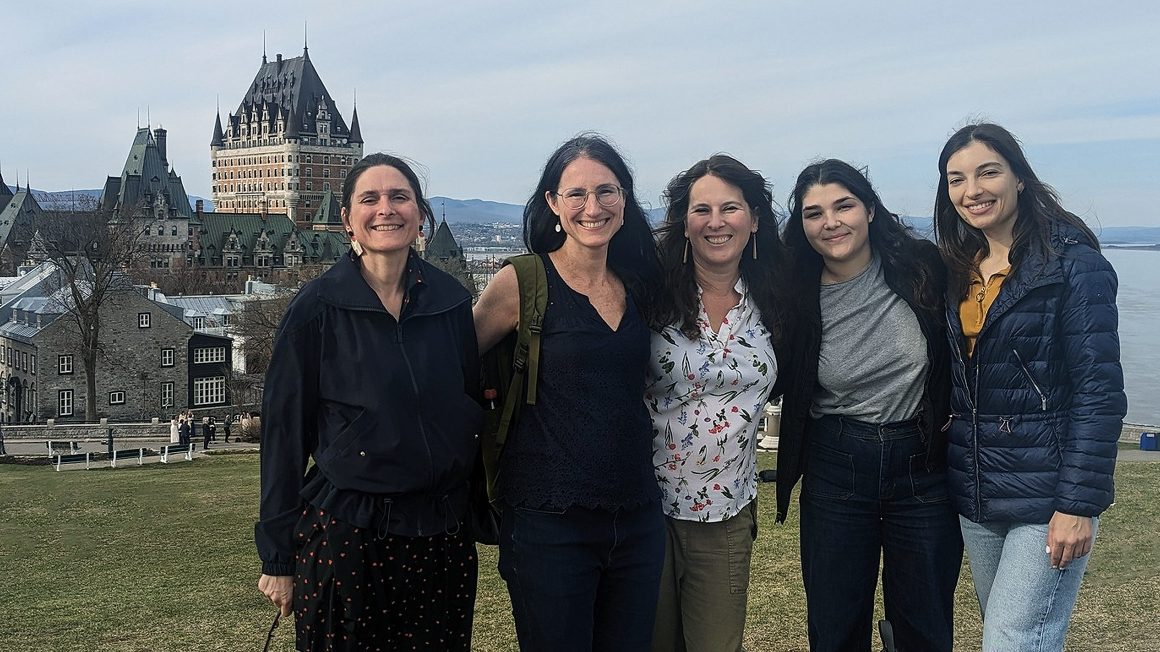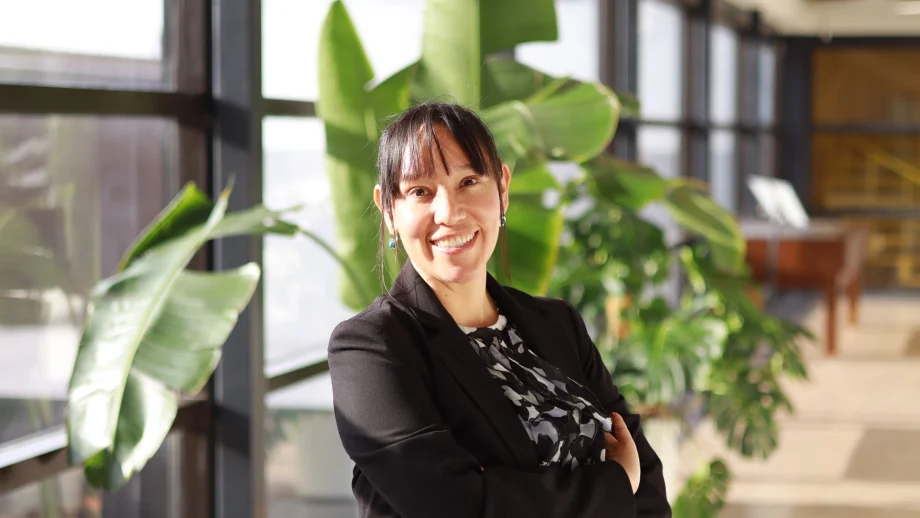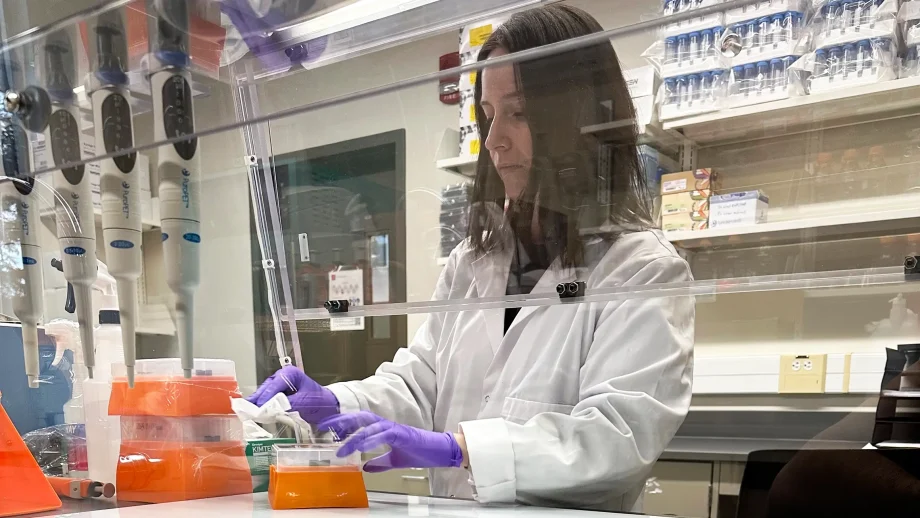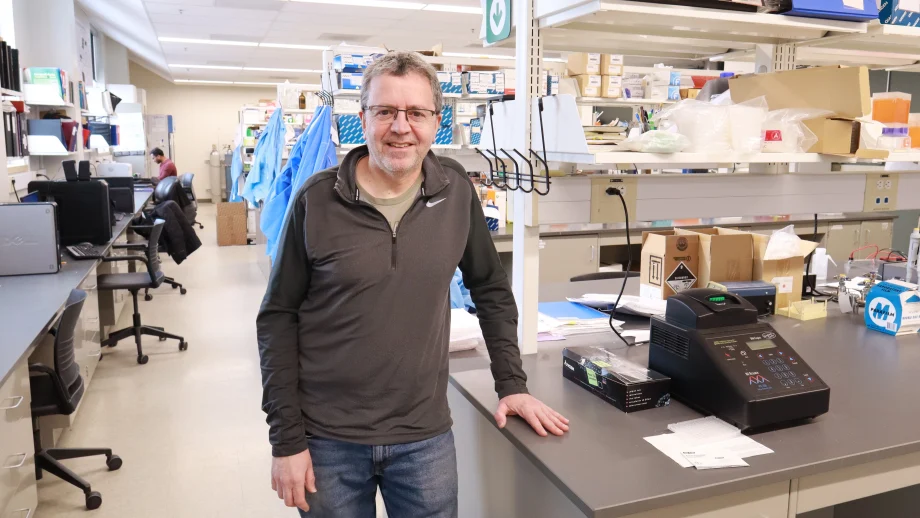For over a century, Canada has welcomed displaced Ukrainians, and now has one the world’s largest Ukrainian diaspora populations.
Most recently, a new wave of Ukrainians fleeing the invasion by Russia have arrived because of the creation of the Canada Ukraine Emergency Travel Authorization (CUAET) program.
This program provides temporary status to Ukrainian nationals and their family to travel, study, and work within Canada for up to three years.
I remain a strong advocate for robust asylum and resettlement programs granting refugees permanent residence.
Dr. Shauna Labman
UWinnipeg Global College’s Dr. Shauna Labman and Dr. Natella Malazoniia are working with Laval University’s Dr. Adèle Garnier, principal investigator, as well as Dr. Danièle Bélanger and Dr. Agnès Blais on a Social Sciences and Humanities Research Council of Canada Insight Development Grant.
They are examining the trajectories, admission, and settlement experience of CUAET holders with a focus on two specific Canadian cities that are similar in size: Quebec City and Winnipeg.
A tale of two cities
Although they are comparable in size, they are very different cities. Winnipeg has a diverse population in addition to having a long history of welcoming Ukrainians, while Quebec City is one of Canada’s least diverse cities, with a small Ukrainian community.
Assisting with the research are undergraduate students from both institutions: UWinnipeg’s Abby Saulog and ULaval’s Claire Horsin and Geneviève Fournier.
The project also aims to gain a multiscale understanding of the impact of Canada’s new immigration measures for Ukrainian nationals on national policy, at the local level and on individual Ukrainians, and within the communities they reside.
Impacts of multilevel governance
Dr. Garnier is particularly keen to understand how multilevel governance impacts how displaced Ukrainians settle in Quebec City and Winnipeg.
“The interplay of federal, provincial, and municipal policies results in distinct responses in both cities,” shared Dr. Garnier. “Comparing the two cases helps us grasp the local nuances of Canada’s response to Ukrainian displacement and can inform future settlement initiatives in mid-sized cities.”
Fournier did a systematic review of which federal, provincial, and municipal services were available to displaced Ukrainians in Quebec City.
Assessing the needs of people fleeing war
Dr. Malazoniia, a Ukrainian Scholar at Risk, believes it’s crucial to thoroughly assess the needs and requirements of people fleeing war and what process they are going through.
“It is important to understand the potential advantages and disadvantages of existing measures of help and the impact of the emergency status, in this case, granted to Ukrainians on the settlement,” shared Dr. Malazoniia. “The context of two mid-sized cities, Quebec and Winnipeg, can exemplify the difference and provide the space to think about it.”
The researchers are combining many methods to ascertain the displaced Ukrainians’ trajectories from their specific location of origin to Winnipeg and Quebec City, and tracking the evolution of their visa status.
Horsin has mapped the trajectory of a Ukrainian family from Ukraine to Quebec City, and is working on a similar family trajectory from Ukraine to Winnipeg that will be ready at the end of the summer. These maps will also be translated to English and Ukrainian as part of the project.
Legal and policy analysis
Methods also include legal and policy analysis with interviews with displaced Ukrainians, and supporting Ukrainian Canadians. They will also interview settlement stakeholders from nongovernmental service providers and municipal, provincial, and federal government representatives in Quebec City and Winnipeg.
For Dr. Malazoniia, her motivation is personal from having gone through this process herself. “I understand how vital assistance to displaced people is, and the necessity and significance of studying various models of providing aid and their impact on displaced people in general.”
For Dr. Labman, an expert in refugee law and Canada’s resettlement programs, the CUAET raises questions on Canada’s shifting humanitarian response from permanent protection to temporary visas.
Saulog, Dr. Labman’s student, is researching the legal framework towards permanent residence of CUAET holders.
Dr. Labman notes that while the temporary protection enables a swift response that brings people to safety faster, we need a better understanding of what comes after their arrival, and the various legal processes.
Ukrainians are moving through without any guarantees of permanent protection. “I remain a strong advocate for robust asylum and resettlement programs granting refugees permanent residence,” said Dr. Labman.
Dr. Labman suggests that anyone interested in human rights should consider a Bachelor of Arts in Human Rights at UWinnipeg.
“I encourage anyone interested in refugee related issues to consider a degree in human rights or a minor,” shared Dr. Labman. “And consider classes this fall, including, HR-2310: Refugees, Resettlement, and Resilience.”





